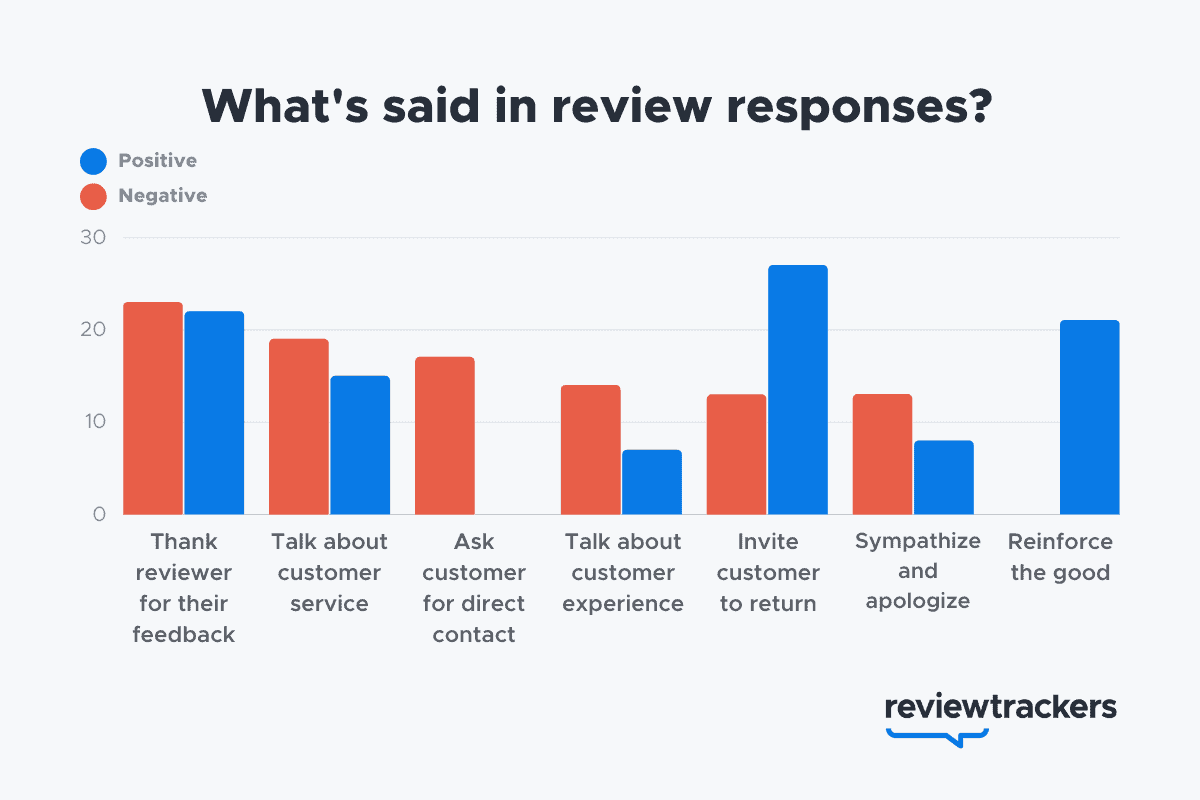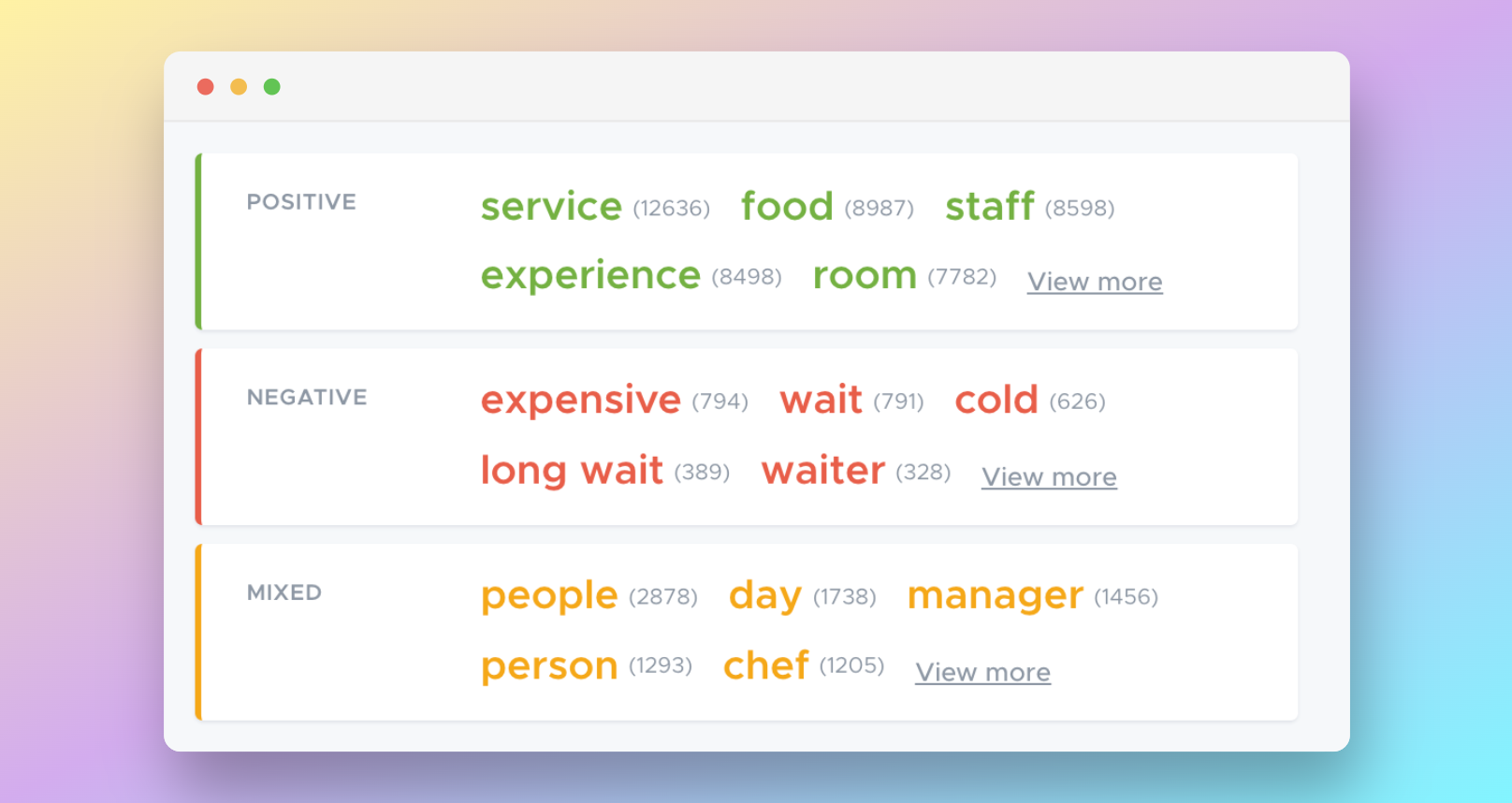As the travel industry gears up for the road to economic recovery, hoteliers can play the long game and capitalize on opportunities to improve brand reputation and accelerate improvement in a post-pandemic landscape.
One such opportunity lies in embracing technological transformation and harnessing online guest reviews and feedback data — from websites like Google, TripAdvisor, Expedia, and even Facebook.
Most executives understand the impact that guest reviews have on a hotel brand’s reputation. According to research:
- 48% of guests will leave a review after a bad hotel experience. (Customer Reviews Research)
- 96% of travelers consider reviews important in the research phase. (SiteMinder)
- Over 90% of hoteliers and travel and hospitality brands think online reviews are among the three most important factors affecting the future of their industry. (Tripadvisor)
In short: the power that reviews have to shape consumers’ decisions is undeniable.
Hotel Reputation Management Plan: 4 Keys to Success
Managing hotel reviews can involve a lot of work, particularly for hotels that handle multiple properties and locations. This is why it’s crucial to apply best practices so that your team stays organized, efficient, and responsive.
Whether you’re just getting started with managing hotel reviews or looking to add tactics to your playbook, here are best practices you can follow.
Step 1: Respond to Reviews and Resolve Issues
One of the most fundamental ways to manage reviews is by responding to them.
According to ReviewTrackers, 53% of guests expect hotels to respond to their reviews within 7 days. Meanwhile, according to Cornell, responding to reviews leads to improved sales and revenue and appears positively related to the consumer’s view of the hotel.
Responses to reviews must be carefully written: in digital spaces like social media and business review sites — just as in traditional feedback channels like post-transaction surveys and support and service phone calls — guests want to be heard individually and addressed personally. It is absolutely crucial for marketing teams to take these reviews seriously and address any issues that impact the hotel guests’ experience.
Step 2: Proactively Generate Guest Reviews and Feedback
Letting guests know that your hotel welcomes their feedback can give you an edge over the competition.
According to Cornell, “Encouraging reviews via post-stay surveys not only increases the number of reviews posted on sites like Tripadvisor; it also boosts the hotel’s actual review scores. Along with an increase in review volume and review scores, hotels also experience an increase in their ranking and, more importantly, moderate improvements in occupancy and revenue.”
Asking for reviews is a must-have skill for hotel and hospitality managers. Reviews are also one of the biggest factors influencing a company’s local SEO (local search engine optimization) performance and can improve the search visibility of your hotel brand.
Step 3: Use Reviews to Strengthen Your Brand’s Marketing Infrastructure
Industry trends indicate that travelers prefer and trust customer-generated reviews over promotional posts by companies on social media.
This means that your hotel brand’s best reviews can be used as effective marketing assets for improving brand awareness and online visibility.
- Reviews can help improve booking conversions, which can go up by as much as 17% when reviews and ratings are displayed in search results. (PhocusWire)
If your hotel properties consistently receive 5-star ratings and reviews on online review sites, don’t hesitate to show them off. Share guest testimonials and the best reviews on your Facebook, Twitter, and Instagram profiles, or even on your company blog.
Step 4: Analyze Guest Reviews and Feedback
For years, operators have relied on basic social listening tools and traditional approaches for staying on top of feedback. Many hotels also deploy technology for using social media as a customer service channel. However, the ability to analyze text contained in reviews as well as first- and third-party feedback presents an opportunity for greater clarity.
Natural language processing technology (NLP) can yield and elevate significant insights in a small amount of time. Used effectively, it can shape the way hotels deliver their guest experience. Often, the process involves analyzing data from guest feedback and online reviews posted on Google, Expedia, Tripadvisor, Facebook, and similar other sites.
By having the ability to analyze guest feedback, your organization can gain deeper insight into the guest experience and foster improvements in areas where they will have the most impact.
Final Thoughts
For many of today’s top hotel and travel brands, online reputation and reviews have become powerful drivers of revenue and growth.
To maintain an attractive brand reputation, gain the trust of consumers, and drive revenue, hospitality brands must manage their reviews or risk losing revenue over time. Brands must also nurture their digital marketing and review channels. Equipped with the right technological tools, companies can develop the capability to collect actionable review data and manage high-impact trends and issues affecting the guest experience.
To get started with your hotel brand’s reputation management strategy, follow these best practices:
- Respond to your guests’ reviews and resolve their issues.
- Proactively generate guest reviews and feedback.
- Use reviews as assets to strengthen your marketing infrastructure.
- Use analytical tools to get the most out of reviews and guest feedback.
Get started on your hotel reputation management strategy today to gain a competitive advantage and deliver tailored experiences that ensure vital guest satisfaction and future loyalty.

